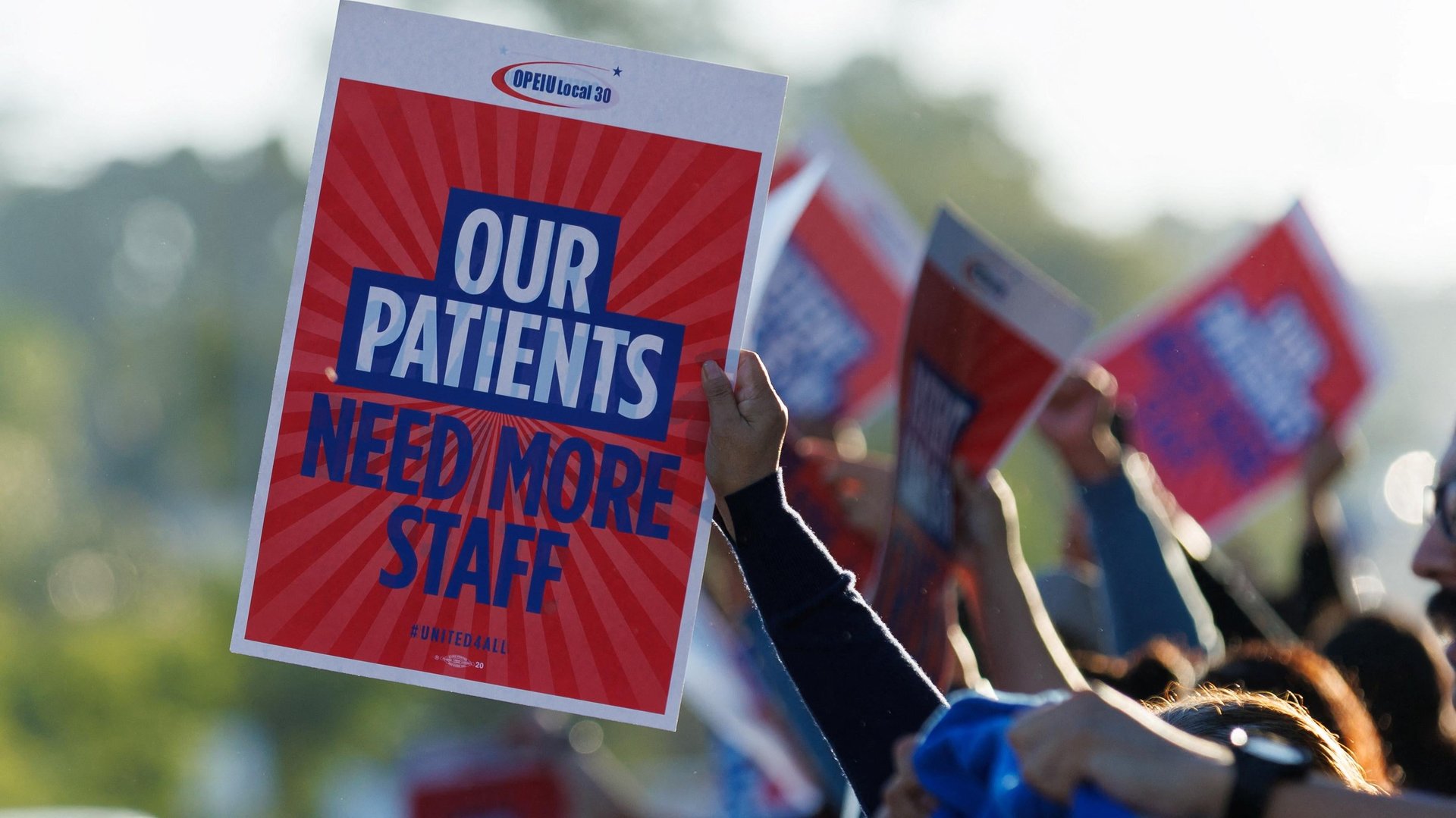The largest healthcare strike in US history is now underway at Kaiser
75,000 Kaiser Permanante union workers are striking over chronic staffing shortages and pay

Some 75,000 Kaiser Permanente unionized workers walked off their jobs on Wednesday, launching the largest healthcare worker strike in US history. Striking workers include licensed vocational nurses, home health aides, and ultrasound sonographers, as well as technicians in radiology, x-ray, surgical, pharmacy, and emergency.
Suggested Reading
They are represented by the Coalition of Kaiser Permanente Unions across California, Colorado, Oregon, Virginia, Washington state, and Washington DC. The strike is expected to last three days, from Oct. 4 through Oct. 7.
Related Content
“Healthcare workers are next to strike because they put their lives on the line every day to care for our communities,” Mary Kay Henry, head of the 2 million-member Service Employees International Union (SEIU), said in a statement. “They show up to take care of us when we’re sick and comfort us when we’re afraid—including through a deadly pandemic.”
Staffing shortage plagues the healthcare industry
Kaiser is a nonprofit based in Oakland, California, and is one the largest managed healthcare providers in the country, serving 13 million patients. The union coalition says the extraordinary strike centers around severe worker shortages and low staff retention, after the pandemic took an emotional toll on workers.
The union’s demands include raising wages to match living standards, including establishing a minimum wage of $25 per hour, as well as fixing broken hiring systems where a vacancy takes an average of 80 days to fill, and investing in more education and training.
“Both Kaiser Permanente management and Coalition union representatives are still at the bargaining table, having worked through the night in an effort to reach an agreement,” the company said in a statement on Wednesday. “There has been a lot of progress, with agreements reached on several specific proposals late Tuesday.”
“We may experience high call volumes”
In Southern California, Kaiser shared this notice to patients: “We are disappointed that some unions have called on employees to participate in a labor strike… As a result of this strike, we may experience high call volumes resulting in longer than usual wait times.”
The company assured patients that despite the strike, their hospitals, emergency departments, and pharmacies will remain open.
Workers are expected to return to work after the three day strike. But if a deal cannot be reached between the coalition and Kaiser, a “longer, stronger” strike may happen again in November, according the SEIU-UHW, the largest union in the coalition.
Related stories
🏥 Read more about the global healthcare industry and the treatment of nurses around the world in our Merchants of Care investigative series:
- A hidden system of exploitation underpins US hospitals’ employment of foreign nurses
- Rich countries are importing a solution to their nursing shortages—and poor countries are paying the price
- How Indian brokers take the shine off the dreams of migrant nurses
- An exodus of nurses has caused a “medical brain drain” in Nigeria. Are rich countries to blame?
Find the full series here.
